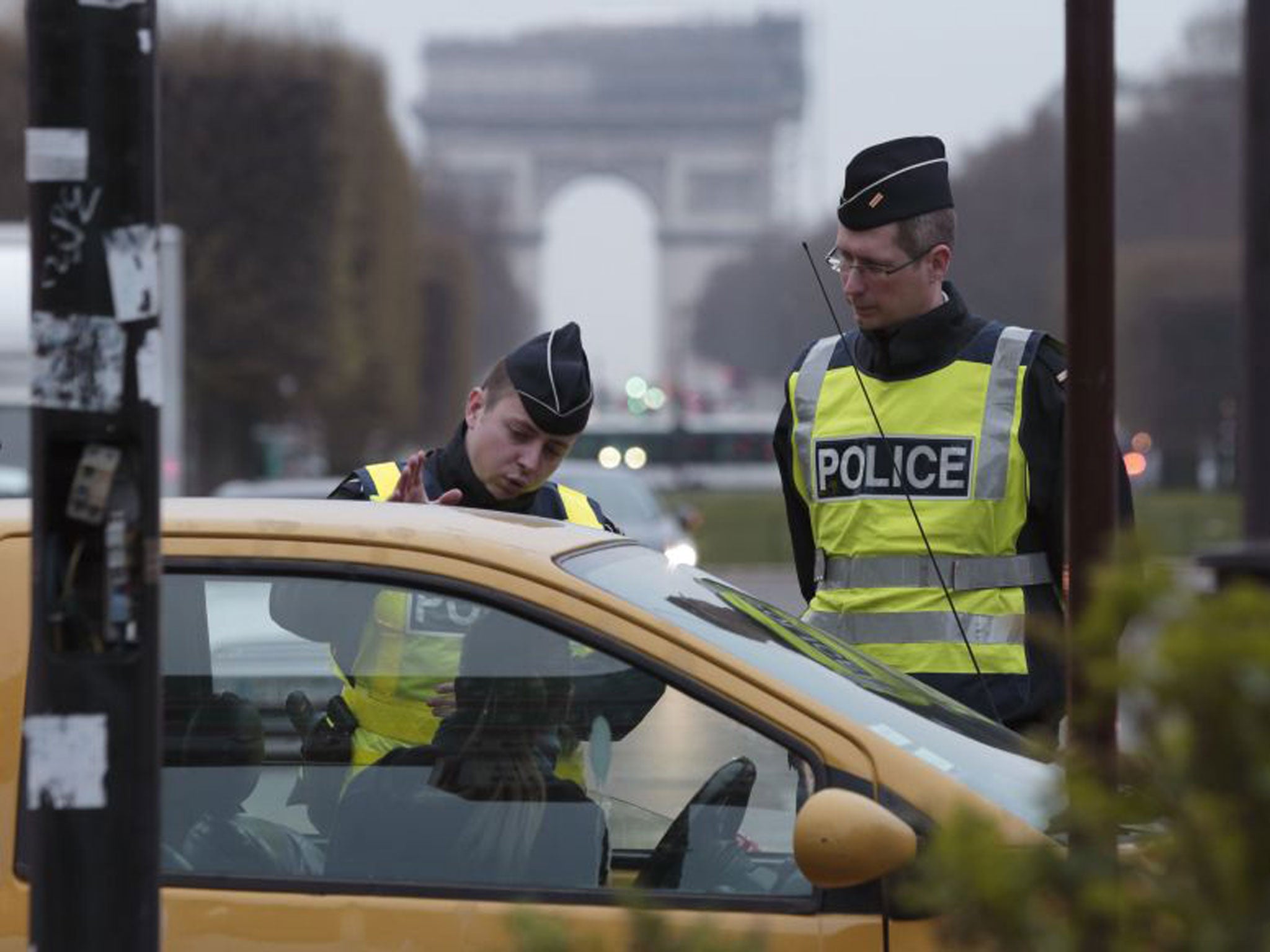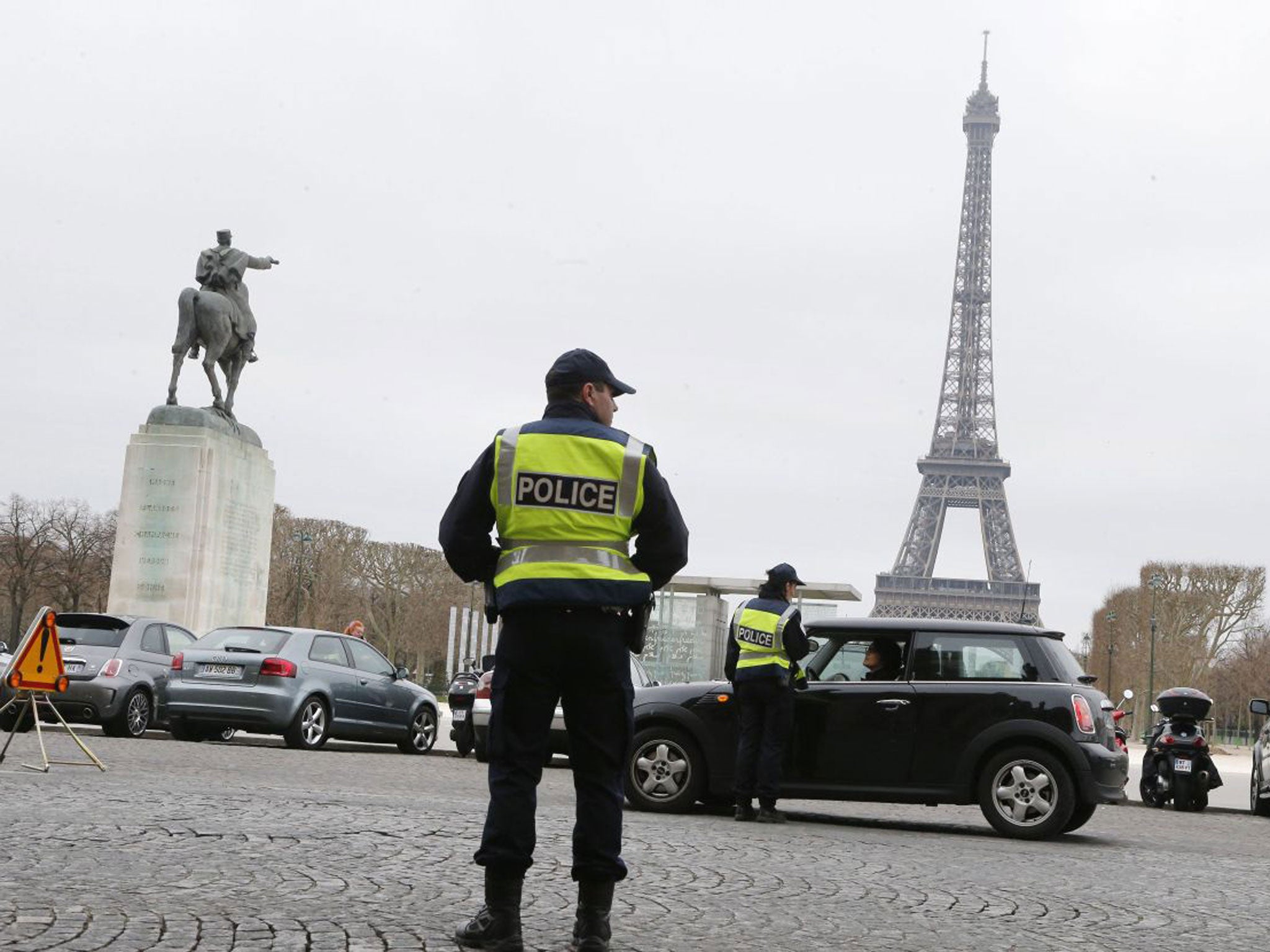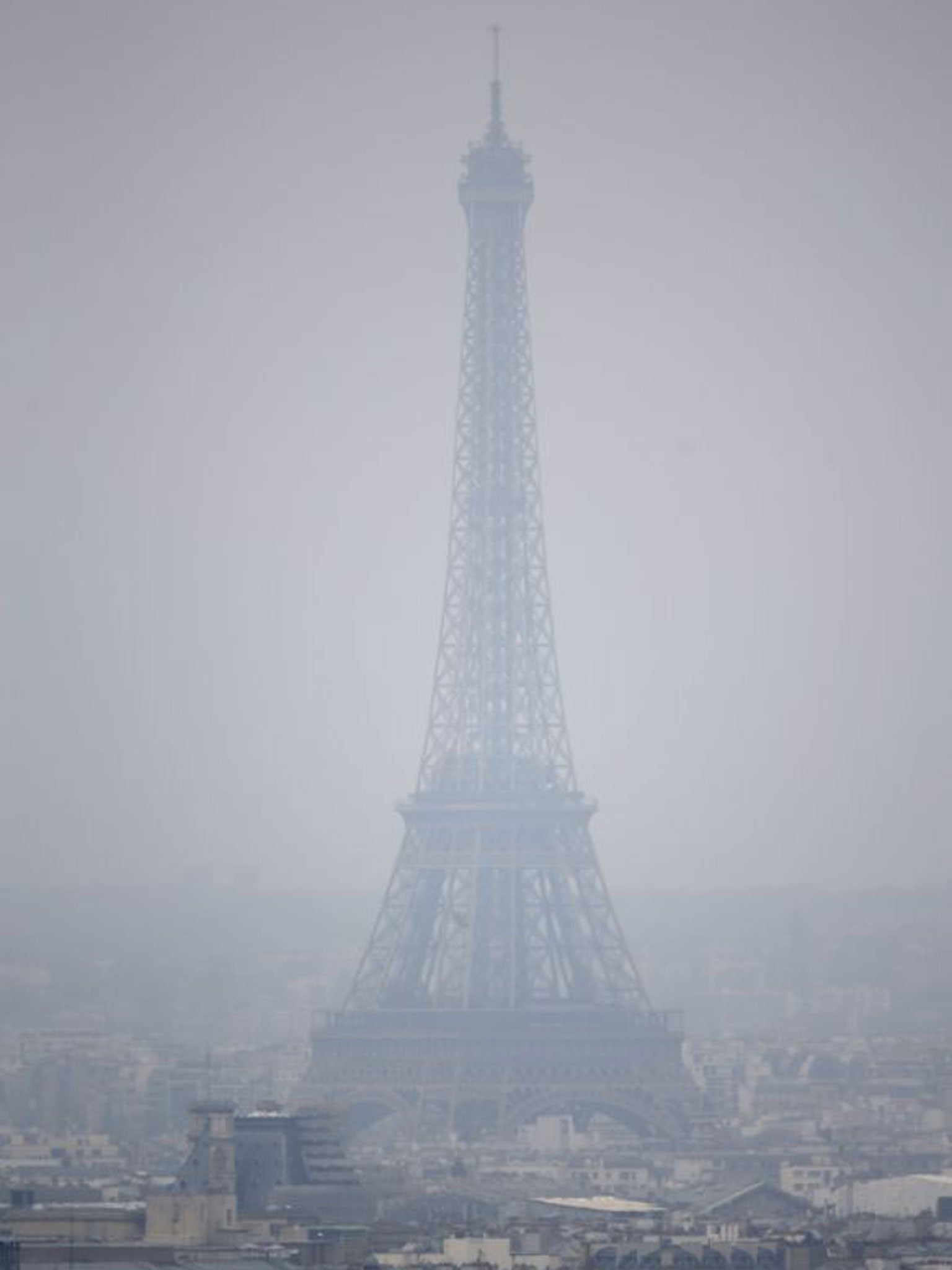An odd day in Paris: French capital bans even-numbered vehicles for one day to reduce air pollution

Your support helps us to tell the story
From reproductive rights to climate change to Big Tech, The Independent is on the ground when the story is developing. Whether it's investigating the financials of Elon Musk's pro-Trump PAC or producing our latest documentary, 'The A Word', which shines a light on the American women fighting for reproductive rights, we know how important it is to parse out the facts from the messaging.
At such a critical moment in US history, we need reporters on the ground. Your donation allows us to keep sending journalists to speak to both sides of the story.
The Independent is trusted by Americans across the entire political spectrum. And unlike many other quality news outlets, we choose not to lock Americans out of our reporting and analysis with paywalls. We believe quality journalism should be available to everyone, paid for by those who can afford it.
Your support makes all the difference.Monday was an odd day in Paris: officially “odd” but also oddly peaceful and oddly law-abiding.
To reduce acute air pollution, half the private cars and motor-bikes and almost all trucks were banned from the roads of the French capital and its inner suburbs. On Monday, only odd-numbered vehicles were allowed.
Tuesday was to have been the turn of the “evens” but the Government decided that the scheme was so successful that it could be abandoned after only one day.
By Monday afternoon, 4,000 motorists had been given 22 euro instant fines for driving illegal, even-numbered cars. The police said that this was far fewer offences than they had expected.

The standard 170 miles of traffic jams on the approach to Paris on a working day were reduced to 60 miles or less yesterday morning. Airparif, the agency which checks air quality, said that there had been “a sharp fall” in the minuscule particles in the atmosphere which have pushed Paris – and large swathes of France – over the recommended safety levels since last Wednesday.
As a result, the Government decided that a second day of restrictions was not needed. What a pity.
A bizarre calm fell on the main thoroughfares of the capital. Even the inner ring-road, or Boulevard Péripherique, generally jammed for large parts of the day, acquired the sedate spaciousness of a rural dual-carriageway.
Sebastien, a 34-year-old insurance worker who usually drives into the La Défence office ghetto just west of Paris, said: “I had to beg a lift with a friend who has an odd-numbered car. He is going to come with me tomorrow. For a couple of days, people don’t mind too much. But this is not a solution to the problem. Everyone knows there are too many diesel cars in France. When is the government going to do something about that?”

Paris, it should be pointed out, is not yet Beijing. Nor is it Los Angeles or London in the days of the great “smogs” of the 1960s or 1970s. The pollution is largely invisible. The French capital, although a little chillier, basked in bright sunlight for the fourth day in a row.
Nonetheless, the European Environment Agency reported last week that there were 147 microgrammes of “particulate matter” for every cubic metre of air in Paris - compared with 114 in Brussels, 104 in Amsterdam, 81 in Berlin and 79.7 in London.
This was blamed partly on the sunny, windless weather which had placed a roof of warm air over northern France. The dangerous level of “particulate” pollution is also blamed on emissions from agriculture, industry and, above all, the diesel-engine cars which represent 60 per cent of the French fleet.
Since last Friday, Parisians have been advised to keep very small children and elderly people at home and not to exercise to strenuously in the open air. Many of the joggers in Paris parks yesterday wore masks.
Armelle, 27, said that she was “much too addicted” to give up her daily run. “Maybe I’ll only run every second day like the cars,” she said. “My birthday is an on odd number so I am OK to exercise today.”
The partial ban – implemented for the first time since 1997 – applied to all French-registered private cars and motor-bikes but not foreign cars.
There were also exemptions for emergency vehicles, taxis, electric or hybrid cars and those carrying three people or more. All trucks were banned except emergency vehicles and those carrying perishable goods.
The air pollution crisis has kickstarted a debate which has long been avoided in France on the country’s dependence on diesel cars. Delphine Batho, a former Socialist environment minister, said yesterday that the government must risk further unpopularity and increase taxation on diesel fuel. Unlike most European countries, diesel is substantially cheaper than petrol in France.
The only political challenge to yesterday’s partial driving ban came from the far right National Front which accused the government of penalising “ordinary people”. There was much grumbling, however, on right-wing or pro-motorist websites.
One anonymous contributor to a forum in the right-wing Le Figaro said that the pollution problem in Paris was not caused by cars at all. The real culprits, the contributor said, were Roma immigrants burning wood in their encampments around the capital.
Join our commenting forum
Join thought-provoking conversations, follow other Independent readers and see their replies
Comments